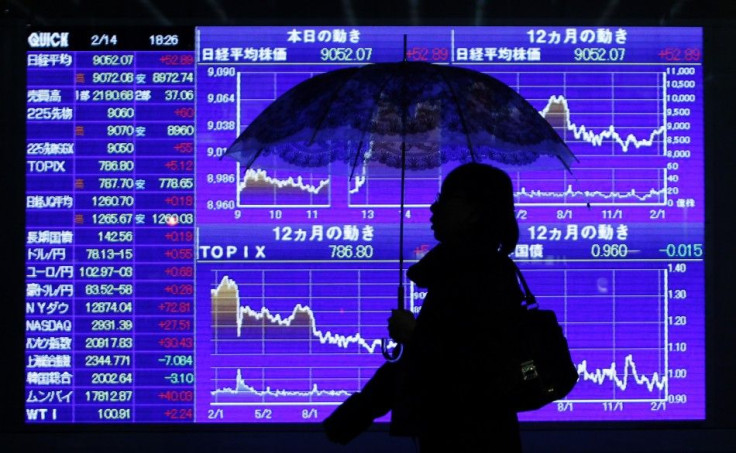Asian Stock Markets Slump On Euro Zone Concerns

Asian markets fell Wednesday on increasing concern that Greece will exit the euro zone. Japan's Nikkei Stock Average lost 1.98 percent, or 172.69 points, to 8556.60 and South Korea's KOSPI fell 1.10 percent, or 20.07 points, to 1808.62. Chinese Shanghai composite index dropped 0.42 percent or 9.87 points to 2363.44 and Hong Kong's Hang Seng declined 1.33 percent, or 252.96 points, to 18786.19.
Market sentiment continued to be negative as a report quoting former Greek prime minister Lucas Papademos stated that Greece was considering preparations to leave the euro zone. Greece will hold fresh elections June 17. There are concerns that parties opposing the austerity measures will gain majority in the re-election. This will mean that Greece will not receive the bailout package, which will cause its banking system to collapse, leading to its exit from the euro zone.
The Organization for Economic Cooperation and Development (OECD) reported Tuesday that the debt crisis in Europe was badly affecting the global economy. The risk is increasing of a vicious circle, involving high and rising sovereign indebtedness, weak banking systems, excessive fiscal consolidation and lower growth, the OECD's semi-annual report on the global economy said.
Leaders of the European Union nations are meeting in Brussels Wednesday where they will discuss measures to be taken to handle the weakening economic condition. Germany and France have already promised their support for the continued efforts to keep Greece in the euro zone.
However, it is possible that in the meeting Germany and France could bring out their differences in dealing with the economic situation. While Germany is for austerity measures, the new French government wants them to be replaced by pro-growth policies.
Another factor that dragged down Asian market sentiment was the report that Japan's trade deficit rose in April compared to earlier year. The finance ministry data showed that the country recorded 520.3 billion yen ($6.5 billion) trade deficit in April up from 477.7 billion yen a year ago.
© Copyright IBTimes 2025. All rights reserved.





















